VIPsight - 4th Edition 2020
COMPANIES
thyssenkrupp AG: Waiting for strategic Progress
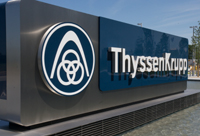 There are companies whose financials make you wonder what made the COCID pandemic worse about it. thyssenkrupp is an example of this. So as not to be misunderstood, the pandemic had an impact on the fiscal year 2019/20. But was it really necessary to highlight this factor in the heading for the related press release, when the main problems of this group are structural and the pandemic only acted as a fire accelerator? The answer seems to be yes, throwing another question mark about the preciously already dubious outlook for the group.
There are companies whose financials make you wonder what made the COCID pandemic worse about it. thyssenkrupp is an example of this. So as not to be misunderstood, the pandemic had an impact on the fiscal year 2019/20. But was it really necessary to highlight this factor in the heading for the related press release, when the main problems of this group are structural and the pandemic only acted as a fire accelerator? The answer seems to be yes, throwing another question mark about the preciously already dubious outlook for the group.
As expected, the balance sheet could be significantly strengthened by the proceeds from the elevator sale. But only part of the fire can be extinguished with this liquidity. What it did is buying time for the necessary steps to reestablish the remaining activities as leading players in their markets. The CEO statement, therefore, is not a truism, but a bitter necessity put in nice words: “Our strengthened balance sheet gives us the opportunity to systematically implement further necessary steps in our plan for the future of thyssenkrupp. We´re not yet where we need to be and will therefore keep on working persistently.”
The pandemic effects can be quantified. Initially, the group planned to reduce the workforce by 6,000 over three years. The pandemic added additional 7,400 jobs. One has to admit that there is always room to argue about whether the original plan was too conservative and COVID presented a proper scapegoat to raise the numbers. Probably there are already heated discussions with union representatives about this. But these are useless arguments. With these accounts, thyssenkrupp made clear that the struggle is about survival and not cosmetics. And the main culprit is still the same, the Steel Europe division, which contributed an adjusted EBIT loss of 946m EUR. What is more, the forecast indicates a loss in the low three-digit million EUR range.
But at least the report kept some hole alive with the confirmation, that thyssenkrupp is exploring various competing options for the steel business. This is in line with press speculations about talks with Liberty Steel, Tata Group, and SSAB. A fundamental decision on the steel business is expected to be made in spring 2021.
Delivery Hero SE: Korean Authorities prescribe a Diet
It seems the days of the great dreams of borderless international expansion are over in Berlin.
In December 2019, Delivery Hero announced the purchase of shares in, and the establishment of a joint venture with the management of Woowa, the operator of Korea´s largest food delivery platform. At the time the closing of the transaction was expected to occur in the second half of 2020, subject to certain conditions such as financing of the cash consideration and regulatory approvals, including merger control clearance by the Korean Fair Trade Commission.
Although the valuation looked high in the pre-COVID-environment, investors appreciated this news since the transaction would have granted Delivery Hero the dominant position in this important market. This is one of the reasons why the following fundraising activities of the company went smoothly. However, there was a long noticeably silence on the regulatory front until it banged on November 13th, when the company confirmed receipt of the examiner´s report in which the case team of the Korea Fair Trade Commission recommended that the Commission require the divestment of Delivery Hero´s fully-owned subsidiary Delivery Hero Korea LLC. As a condition to the antitrust approval for the previously announced joint venture with Woowa Brothers Corp. And investors learned from the announcement that it is even worth because there is no certainty whether the Commission will follow the suggestions of the examiner´s report to ask for the divestment or request other remedies from Delivery Hero in its final approval of the joint venture (assuming, it will be approved).
But wasn´t the strong market position to be achieved through the combination of the activities of Woowa and Delivery Hero the justification for the transaction and the high valuation? In any case, it looks like the time has come for the board of Delivery Hero to get on the plane to Seoul and refresh their knowledge of Korea.
Buhlmann's Corner
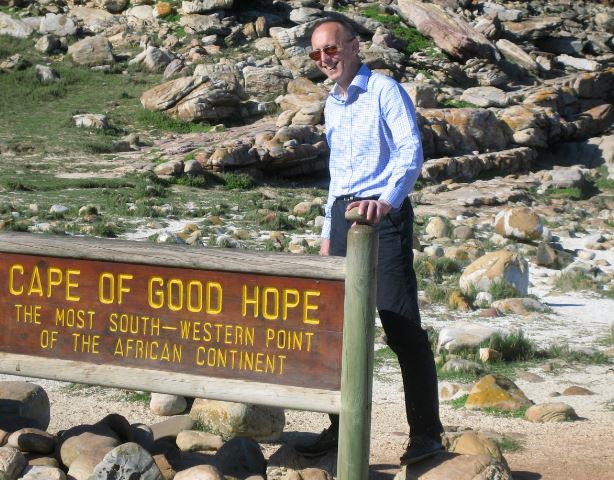
Blue or red / Republicans or democrates - who is the star?
 The most important annual general meetings in Germany and Europe were held in a shut-up mode - and currently the wave of annual general meetings is spilling over to Australia:
The most important annual general meetings in Germany and Europe were held in a shut-up mode - and currently the wave of annual general meetings is spilling over to Australia:
In Germany, the owner's right to ask questions became the employee's right to answer, without any real technical need. Austria and South Africa are not the only countries that have proven that it can be done differently. The German shareholder and share culture is sick. If you take the professional shareholder DWS Group: chora publicum, its respectable shareholder representatives, from Hendrik Schmidt to Nicolas Huber to Susana Penarrubia et al. are struggling to fight and promote shareholder democracy in the big footsteps of Prof. Christian Strenger. At home, in the virtual AGM of DWS on November 18, 2020, shareholders were not only wearing mouth and nose protection but also a muzzle.
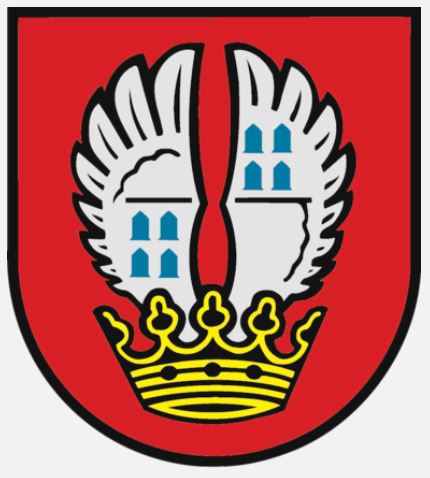 |
| Eschborn, which has been documented since June 12, 770, has been using its coat of arms since February 8, 1937 |
The exemption clause will continue to exist in 2021. However, as in 2020, which is coming to an end, it should apply that management boards do not limit their decision-making responsibility to signatures on consultants' checks, but use it primarily for dialogue. Was it a coincidence that the (first) creditors' meeting at Wirecard could take place on the same November 18 as a face-to-face event (with strict rules)?
A 3-7 minute slot at the microphone at the struggling Deutsche Bank is only slightly more democratic - but such shares will have been avoided in the last decade anyway in respect for one's own heirs. Also the Monegasque casino Société Anonyme des Bains de Mer et du Cercle des Etrangers à Monaco opened the gates in new rooms and instead of giving out money in kind, they handed out a cash attendance bonus again. VIP has consistently refused to re-elect or discharge the organs that practiced pure monologue events.
| xxxxxxx |  |
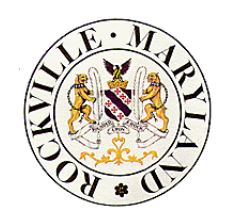 |
|
Rockville, a suburb of Washington DC, was founded nearly 1,000 years later in 1717 |
||
In the shut-down state of shareholder democracy, the coordinates are reset globally. Blaming American governance, voting recommendations or governance advice from Rockville was yesterday: today a local call to Eschborn is sufficient. Even hidden behind the (South American) Qontigo, the majority of the ISS (Institutional Shareholder Service), which was also co-founded by Hermes (today Federated Hermes) in 1984, is in Eschborn - that's where the music is playing.
Exciting times. 20 miles separate ISS from Washington DC, 20 km separate the headquarters of the stock exchange from downtown Frankfurt and mile for mile and km for km a new conflict of interest - you can quickly lose sight of the world in front of Chinese walls: Admiration, Mr. Joachim Faber, here the stars have been remixed - not just the colors blue and red.

ACTIONS CORNER
Deutsche Börse AG: Invest in Corporate Governance
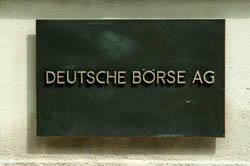 Deutsche Börse announced that it will acquire a majority share of approximately 80% in Institutional Shareholder Services Inc. (ISS). The transaction values ISS at 2,275m USD on a cash and debt-free basis. Genstar Capital LLC and the current management of ISS will continue to hold a stake of approximately 20% of ISS. The transaction is expected to close in the first half of 2021, subject to customary closing conditions and regulatory approvals. Deutsche Börse plans to finance the acquisition with a debt component of 1 bn EUR and cash.
Deutsche Börse announced that it will acquire a majority share of approximately 80% in Institutional Shareholder Services Inc. (ISS). The transaction values ISS at 2,275m USD on a cash and debt-free basis. Genstar Capital LLC and the current management of ISS will continue to hold a stake of approximately 20% of ISS. The transaction is expected to close in the first half of 2021, subject to customary closing conditions and regulatory approvals. Deutsche Börse plans to finance the acquisition with a debt component of 1 bn EUR and cash.
In 2020, ISS is expected to generate net revenue of more than 280m USD (Pro-forma IFRS) and an adjusted EBITDA margin of approx. 35% (pre-transaction effects). The net revenue of ISS is expected to grow organically at a rate of more than 5% p.a. on average until 2023. While this looks expensive, the real incentive for this transaction is the expectation that the partnership with a leading corporate governance, ESG, data, and analytics provider shall help to generate further growth opportunities for Deutsche Börse Group in ESG-based investing. Both businesses are regarded as highly complementary and offer the potential for revenue synergies, which are expected to result in 15m EUR additional EBITDA by 2023.
Considering the strategic potential the transaction looks like a sound investment. But a lot depends on the implementation of the transaction, i.e. the integration into Deutsche Börse Group. ISS is an important participant in the corporate governance world. It reached this position by strictly adhering to certain business principles, including a clear, transparent, and unbiased business execution. As is stated in the Code of Ethics (version November 2020), ISS must always serve the best interest of its clients and not subordinate its client´s interest to its own. This fundamental business principle may also set limits for the scope of the integration and the realization of potential synergies. The parties announced already that in the time following the closing ISS shall continue to operate with the same editorial independence in its data and research organization that is in place today, while the current executive leadership team is expected to remain in place after the closing. Good, then let´s place a bet on a smooth process.
Südzucker AG: Digestive Problems in London
 Sugar is generally considered to be a reliable source of energy that also helps many fellow citizens to achieve a proper build. But when it comes to financials, the sugar business is rather volatile. This is especially true in the case of a complex group architecture, as the example of Südzucker shows. The first half of the current business 2020/21 year showed a significant earnings increase. Shareholders of Südzucker were therefore relatively satisfied, at least until the company announced on November 12th the expectation of a significant burden to the Group´s net earnings due to an impairment on its participation in ED&F Man, which is accounted for at equity.
Sugar is generally considered to be a reliable source of energy that also helps many fellow citizens to achieve a proper build. But when it comes to financials, the sugar business is rather volatile. This is especially true in the case of a complex group architecture, as the example of Südzucker shows. The first half of the current business 2020/21 year showed a significant earnings increase. Shareholders of Südzucker were therefore relatively satisfied, at least until the company announced on November 12th the expectation of a significant burden to the Group´s net earnings due to an impairment on its participation in ED&F Man, which is accounted for at equity.
In its recent six months report the company illustrated that ED&F Man holdings Limited (participation of approx. 35%) is focusing on its profitable business. This is a nice phrase, but what it means is the intention to dispose of interest outside of the core business. The execution of these measures has been delayed, in particular, due to the COVID pandemic. Unfortunately, these industrial interests, therefore are still negatively impacting the result. Against this background, Südzucker expects significant negative implications for the at-equity result, most of which will accrue in the third quarter of the business year 2020/21, and a substantial impact from an impairment on the participation in ED&F man. The effect on Group net earnings is expected to be 140 – 180m EUR (note: valuation as of end of February 2020 was 224m EUR), while the effect on the parent companies accounts shall be 200 – 240m EUR (note: valuation as of end of February was 285m EUR).
Compared to the valuation of the participation, this looks like a cautious approach. However, due to the complex structure of the Group one cannot avoid asking whether there will be further intercompany or operational effects. In any case, it is good to know that ED&F Man secured a three-year extension to its existing financing, thereby gaining the necessary time for the strategic realignment.
K+S AG: From Heaven to Hell in just four Weeks
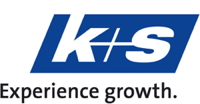 Investors in K+S shares recently went on a rollercoaster ride. In early October, the company informed about a definitive agreement to sell its Operating Unit Americas, comprising its American salt businesses, to Stone Canyon Industries Holdings LLC, Mark Demetree and affiliates for a total of 3.2bn USD, representing 12.5x the 2019 EBITDA of 257m USD.
Investors in K+S shares recently went on a rollercoaster ride. In early October, the company informed about a definitive agreement to sell its Operating Unit Americas, comprising its American salt businesses, to Stone Canyon Industries Holdings LLC, Mark Demetree and affiliates for a total of 3.2bn USD, representing 12.5x the 2019 EBITDA of 257m USD.
The proceeds from this transaction exceeded market expectations by far. And with the proceeds coming in immediately upon closing the transaction in summer 2021, it is clear that K+S at the time also will be able to significantly reduce its high debt burden.
No wonder the share price jumped from 5.5 EUR to more than 7 EUR following this news. But at the beginning of November, the shares were back on the previous level. The reason for this was an ad hoc disclosure with the robust title: “Impairment: K+S cleans up balance sheet”. The story is simple: The Executive Board adjusted its long-term potash price assumptions to a lower level than previously assumed. This resulted in a non-cash impairment loss of about 2bn EUR.
Since the consideration for the sold unit is expected only in summer 2021, it is reassuring that the impairment does not result in a liquidity outflow.
KION Group AG: How to remove COVID-Effects from the Balance Sheet
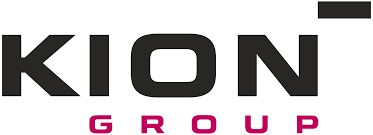 The COVID pandemic has left deep wounds on the capital markets. In many cases, government support helped to avoid the worst. But that means nothing else than a solution for the moment. These interim solutions are nothing more than a postponement of a solution, which is associated with costs and restrictions.
The COVID pandemic has left deep wounds on the capital markets. In many cases, government support helped to avoid the worst. But that means nothing else than a solution for the moment. These interim solutions are nothing more than a postponement of a solution, which is associated with costs and restrictions.
Only a few investors and companies are currently asking themselves how this money can be repaid. KION is one of these forward-looking companies. On November 18th, 2020, the company announced the intention to increase its share capital through the issue of 13,108,647 new shares by way of a rights issue against cash contributions, thereby using a large part of its authorized capital. The subscription ratio shall be 1:9, and the total number of shares after the increase would be 131,198,647. The subscription price is expected to be determined at the beginning of the subscription period, which runs from November 20 through December 3, 2020. The issue proceeds are intended to be used to reduce the level of debt and to provide comprehensive support for growth in the coming years. The planned debt measures include the termination of the syndicated revolving credit facility with a group of banks and KfW, which had been agreed upon in May 2020 to bridge the effects of the pandemic. The growth initiatives include expansion in China, new product developments, the focus on software solutions, and continued efforts to improve performance.
Hmm, the market reacted negatively on this announcement. Has anyone ever thought of how more severely affected companies can remove the COVID patches from their balance sheet?
Bayer AG: Overrun by its Enthusiasm?
 Bayer looks like a faded seedling. It is only appropriate to look for the associated causes in the agricultural business, namely Crop Science. Of course, some critics point a finger at Monsanto. Business was down in North America in particular in Q3, contributing to a decline of EBITDA before special items at Crop Science to minus 34m EUR (Q3 2019: plus 500m EUR). What is still worrying is the unsolved litigation involving glyphosate-based Roundup™ products and several other legal matters. Even the nice marketing wording in the Q3 report lacks the calming effect: “Though progress is being made, it will take more time to complete this process.” But at least we learn that Bayer took an additional provision of 0.75bn USD.
Bayer looks like a faded seedling. It is only appropriate to look for the associated causes in the agricultural business, namely Crop Science. Of course, some critics point a finger at Monsanto. Business was down in North America in particular in Q3, contributing to a decline of EBITDA before special items at Crop Science to minus 34m EUR (Q3 2019: plus 500m EUR). What is still worrying is the unsolved litigation involving glyphosate-based Roundup™ products and several other legal matters. Even the nice marketing wording in the Q3 report lacks the calming effect: “Though progress is being made, it will take more time to complete this process.” But at least we learn that Bayer took an additional provision of 0.75bn USD.
Do we need more information to realize that the Monsanto-acquisition looks like a classic mistake? But what exactly went wrong? The industrial logic of the transaction still looks convincing. The problems are of a different kind. From today´s perspective, it must be stated that the market development was overestimated and the legal risks underestimated. But let´s remember: At the time, almost all observers were enthusiastic because the deal was classified as the last chance to form a major market participant in this industry. With this perspective, who would still want to deal with questioners?
Being able to correctly assess legal risks and market developments is the basis of M&A transactions. And who in the agricultural industry should have a better understanding of it if not Bayer? Sure, the discussion with the critics of glyphosate must continue. But maybe it is also about time to ask why Bayer was so blatantly wrong about key decision-making factors with this transaction?
METRO AG: It´s Crunch Time
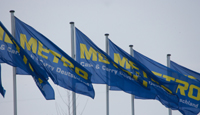 Around a year after its first attempt, Daniel Kretinsky´s EP Global Commerce GmbH made a new attempt to expand its position at METRO. It all started with a participation just below the 30% mark. This is a critical size, since crossing the 30% line requires to make an offer to buy out all other shareholders. And when could there be a better opportunity than in times when the share price bobs around at a low level?
Around a year after its first attempt, Daniel Kretinsky´s EP Global Commerce GmbH made a new attempt to expand its position at METRO. It all started with a participation just below the 30% mark. This is a critical size, since crossing the 30% line requires to make an offer to buy out all other shareholders. And when could there be a better opportunity than in times when the share price bobs around at a low level?
On September 13, 2020, the time had come to act. EP Global announced its intention to make a bid, followed by the formal publication of the offer on October 1, 2020. Shareholders were invited to sell ordinary shares at 8.48 EUR per share and non-voting preference shares at 8.89 EUR per share. These amounts more or less matched the market price at the time of publication and are well below the offer price in 2019 (16.0 EUR per ordinary share and 13.8 EUR per preference share).
No wonder the Management Board and the Supervisory Board weren´t pleased with this offer. The conclusion in the prescribed Joint Reasoned Statement of the Management Board and the Supervisory Board to the shareholders of METRO can be summarized in one sentence: “The Management Board and the Supervisory Board believe that the Ordinary Share Offer Price for each METRO Ordinary Share and the Preference Share Offer Price for each METRO Preference Share are inadequate from a financial point of view.”
Fine, everybody can have their own opinion. For example, the outcome of the offer indicates that it is unlikely that the other major shareholder, Meridian Stiftung and Prof. Otto Beisheim Stiftungen (23.06% of the share capital) sold shares. However, now there sits a more weighty investor in the boat with them, since EP Global increased its participation via the offer to 37.09% of the ordinary shares and 10.13% of the non-voting preference shares.
LEONI AG: Still a lot to be done
Occasionally exciting news comes along quite unobtrusively. Let´s take LEONI AG for example. The company was already in difficult waters before the COVID pandemic. To improve this unfortunate situation, remedial measures were decided and implemented. The VALUE 21 program deserves a special mention here, the implementation of which is progressing faster than initially thought. In the Q3 report, we find the statement that measures to yield the targeted VALUE 21 gross cost savings of 500m EUR from 2022 onwards already applied by the end of the third quarter, significantly sooner than originally planned.
So we are already ahead of 2021, at least regarding this program. So let´s call it VALUE 2020, won´t we. But maybe this is not just about the time factor. At least there is more interesting information in other parts of the Q3 report. For example, what about the sale of the Wire and Cable Solutions Division? This unit with an annual turnover of 1.8bn EUR was supposed to go public in 2019. Alternatively, a sale was considered. And now? “See below”:
Carve-out: we continue to pursue a partial sale scenario; preparations ongoing to setting up units on a standalone basis.
Covestro AG: Growth Accelerator identified
Covestro has made it clear for a long time that they are looking for suitable acquisition targets. A few weeks ago the time had come. On September 30, 2020, the company signed an agreement to acquire the Resins & Functional Materials business (RFM) from Royal DSM. The integration of RFM shall add about 1bn EUR in revenues and an EBITDA of 141m EUR (2019 data) and helps Covestro to expand the revenues of the Coatings, Adhesives, Specialities (CAS) segment by more than 40% to approx. 3.4bn EUR (2019 data Pro-forma). Covestro expects permanent (“run-rate”) synergy effects to build-up to approx. 120 m EUR p.a. from full integration by 2025.
Considering cash equivalents at RFM, the total purchase price of 1.61bn EUR corresponds to a net enterprise value of approx. 1.55bn EUR, representing a valuation of RFM at about 5.7x EV/EBITDA 2021 including Pro-forma run-rate synergies. Excluding run-rate synergies, the EV/EBITDA multiple would be 10.3x. Closing of the transaction is expected for the first quarter of 2021, subject to regulatory approvals.
Financing is secured through a financing agreement which Covestro intends to refinance with a combination of equity, debt instruments, and own cash generation, consistent with the company's commitment to maintaining a solid investment-grade rating. For this purpose, Covestro is planning to utilize its currently existing authorized share capital for an equity issuance to raise approximately EUR 450 million.
Covestro intends to finance the transaction via a combination of equity, debt instruments, and own cash generation. In this context, the company decided to increase its share capital through the issue of 10,200,000 new shares out of its authorized capital without subscription rights for shareholders. The shares were placed with institutional investors by way of an accelerated book-building process at 43.85 EUR per share, resulting in gross proceeds of 447m EUR. The net proceeds from the capital increase shall be used to partially re-finance the purchase price for RFM.
People
Deutsche Lufthansa AG: The Finance Division gets a Pilot
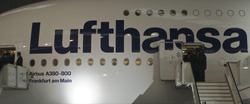 Demanding circumstances require special measures. This seems to be the motto of Lufthansa´s supervisory board when it made its decision to appoint a new finance director. Remco Steenbergen is the new member of the Executive Board and will assume the position of CFO on January 1st, 2021. Until recently Mr. Steenbergen was the CFO of the Swiss Barry Callebaut Group. Following the resignation of his predecessor, the CEO Carsten Spohr took over the responsibilities of the CFO. With the appointment of the new CFO, the Finance Division will be re-established and shall include controlling and risk management, corporate finance, accounting and balance sheets, taxes, purchasing, and mergers & acquisitions.
Demanding circumstances require special measures. This seems to be the motto of Lufthansa´s supervisory board when it made its decision to appoint a new finance director. Remco Steenbergen is the new member of the Executive Board and will assume the position of CFO on January 1st, 2021. Until recently Mr. Steenbergen was the CFO of the Swiss Barry Callebaut Group. Following the resignation of his predecessor, the CEO Carsten Spohr took over the responsibilities of the CFO. With the appointment of the new CFO, the Finance Division will be re-established and shall include controlling and risk management, corporate finance, accounting and balance sheets, taxes, purchasing, and mergers & acquisitions.
It is reassuring that Lufthansa has a CFO again, who appreciates challenges. Amidst the background of the COVID-restrictions, the airline´s business has largely collapsed and improvement is not in sight. It is as simple as that: the survival of the company depends on the successful work of the finance division. The company wouldn´t be where it is today without this work, but it is reassuring to investors that a CFO takes control again.
Aareal Bank AG: Demanding final Spurt for the 2020 Accounts
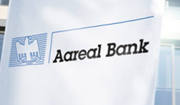 News about personnel changes are often very important to those directly affected, but not so much for the rest of the world. Occasionally there are exceptions to this rule. This applies for example to the information from Aareal Bank AG, that its chairman of the Management Board, Hermann J. Merkens, is temporarily unavailable to perform his duties for health reasons for an expected period of three to four months.
News about personnel changes are often very important to those directly affected, but not so much for the rest of the world. Occasionally there are exceptions to this rule. This applies for example to the information from Aareal Bank AG, that its chairman of the Management Board, Hermann J. Merkens, is temporarily unavailable to perform his duties for health reasons for an expected period of three to four months.
The Supervisory Board immediately took the necessary initiative and made arrangements for the performance of the duties of Mr. Merkens for the interim period. At an extraordinary meeting, the Supervisory Board resolved on substitution regulations for the temporary absence of Mr. Merkens. For example, Mr. Marc Hess will assume Mr. Merkens´ responsibilities for the company´s strategy and will represent Aareal Bank vis-á-vis the capital market and the general public. This is not an easy challenge since Aareal Bank is currently in the middle of a private equity deal. In August, the bank entered into a transaction with Advent regarding the sale of 30% of its IT-subsidiary Aareon at a purchase price of approx. 260m EUR in cash, which is expected to close in the fourth quarter of 2020. Aareal´s bookkeeping will probably appreciate a timely execution and the expected extraordinary profit.
Siemens Healthineers AG: Largest Acquisition to date is well on the Way
 It´s nice when something works as planned. At least that is what shareholders of Siemens Healthineers would have thought when they heard of the approval of the pending combination with Siemens Healthineers at the extraordinary meeting of shareholders on October 16, 2020. This is a main prerequisite for the planned acquisition, which was announced on August 2, 2020.
It´s nice when something works as planned. At least that is what shareholders of Siemens Healthineers would have thought when they heard of the approval of the pending combination with Siemens Healthineers at the extraordinary meeting of shareholders on October 16, 2020. This is a main prerequisite for the planned acquisition, which was announced on August 2, 2020.
In its press release, Siemens Healthineers informed that it entered into an agreement with Varian Medical Systems, Inc., pursuant to which it shall acquire all shares of Varian at 177.5 USD in cash. The total consideration would amount to approx. 16.4bn USD, resulting in the largest acquisition since the IPO in 2018.
Varian is a leading cancer care business, with innovative solutions especially in radiation oncology and related software. In fiscal 2019, the company generated revenues of 3.2bn USD with an adjusted operating margin of approx. 17%. The company is headquartered in Palo Alto, California, USA, and currently employs approx. 10,000 people worldwide. With this portfolio, Varian is regarded as an ideal fit to Siemens Healthineers businesses in medical imaging, laboratory diagnostics and interventional procedures. A positive contribution to adjusted basic EPS is expected within the first 12 months after closing of the acquisition. The acquisition, which shall be financed with a mix of debt and equity, is expected to close in the first half of 2021, subject to customary closing conditions.
In September 2020, Siemens Healthineers issued 75m new shares at 36.4 EUR each, resulting in gross proceeds of 2.73bn EUR. The net proceeds from this issue shall be used as a contribution to the financing of the acquisition of Varian.
Wacker Neuson SE: Differences in Opinion open up Positions for new Appointments
Compared to previous years, companies seem to be thinking a little more beyond the current quarter in 2020. This impression is confirmed by many company news from the second half of the year. Wacker Neuson is one of the outstanding examples of this new approach.
The first step of a management alignment was already introduced in September 2020, when the appointment of Mr. Felix Bietenbeck as a member of the Executive Board in the newly created role of a COO was announced. Measured by the share price development, investors appreciated the initiative, which was designed to enable the Chairman of the Executive Board, Mr. Martin Lehner, to focus even more on the Group´s strategic direction and the further strengthening of its innovative drive.
In November, Wacker Neuson surprised the market with step two. The CEO Martin Lehner informed the Supervisory Board on November 18th, that he will not be extending his contract with the company, which expires on March 31st, 2021, for personal reasons. He will leave the Executive Board on December 31, 2020, but continue to serve the Group in an advisory capacity until March 2021. Furthermore, the CFO Mr. Wilfried Trepels agreed to step down from his position ahead of schedule after he informed the Supervisory Board that he would not be available for an extension of his contract as CFO due to differences in opinion over the corporate management. This decision becomes effective on November 30, 2020. As of December 1, 2020, Mag. Kurt Helletzgruber, Chairman of the Audit Committee, has been seconded from the Supervisory Board to the Executive Board until June 30, 2021, in accordance with Section 105 (2) AktG, and will take on the executive responsibilities of the position of the CFO on an interim basis. As of January 1, 2021, Mag. Helletzgruber will temporarily assume the executive responsibilities of the CEO and take on the position of Chairman of the Executive Board.
The share price reaction shows that the second step of the management alignment was not welcomed by all investors. Who wouldn´t want to attend the AGM in 2021?
Capital News
Wirecard AG: This Company is beyond Payments
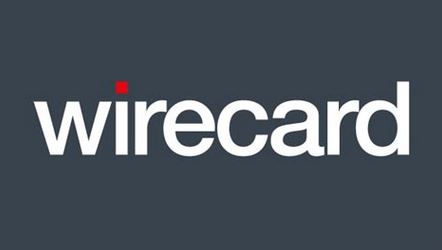
The only thing unfortunate about his trip out of the penal institution is the timing. After all, Wirecards´s creditor´s meeting is taking place at the same time in Munich´s Löwenbrauhaus. The total debt of Wirecard is expected to exceed 3bn EUR, while the around 11,500 creditors even registered claims of over 12bn EUR.
However, the creditors will probably not expect a high quota on these claims, since the proceeds from the sale of assets to date have been low. Nonetheless, there is an interesting feature of this process many shareholders are not aware of. In the event of bankruptcy, shareholders´ assets are usually lost. But here we are talking about fraud. This means that damage claims from shareholders are also possible. Hopefully, all institutional investors realized this chance to recover a part of the money lost. Because of the critical attention paid to the events surrounding Wirecard, I am sure that BaFin will ask questions about it during the next routine audit, or maybe not, who can already know that today?
HOCHTIEF AG: Values realized in Australia
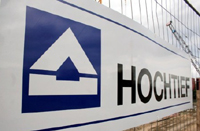 In July, HOCHTIEF informed that CIMIC Group (77.1% HOCHTIEF participation at the time) was in advanced negotiations with funds advised by Elliott Advisors (UK) Limited regarding the potential investment by Elliott into 50% of the share capital of Thiess, the world´s largest mining sector services provider, which would provide joint control of Thiess to CIMIC and Elliott. In October, CIMIC Group (HOCHTIEF participation 77.4% at the time) announced the conclusion of the agreement regarding the acquisition of a 50% equity interest in Thiess by Elliott.
In July, HOCHTIEF informed that CIMIC Group (77.1% HOCHTIEF participation at the time) was in advanced negotiations with funds advised by Elliott Advisors (UK) Limited regarding the potential investment by Elliott into 50% of the share capital of Thiess, the world´s largest mining sector services provider, which would provide joint control of Thiess to CIMIC and Elliott. In October, CIMIC Group (HOCHTIEF participation 77.4% at the time) announced the conclusion of the agreement regarding the acquisition of a 50% equity interest in Thiess by Elliott.
The transaction comes with some interesting peculiarities. The partners will jointly control Thiess under a Shareholders´ Agreement. It also includes future share transfer options including a potential IPO or sale to a third party, and an option for Elliott to sell its interest in Thiess to CIMIC between three and six years from completion at the lower of the sales price or fair market value then, and a guarantee from HOCHTIEF.
The consideration for the sold 50% in Thiess implies an enterprise valuation of approx. 4.3bn AUD, subject to certain adjustments. The transaction will therefore generate cash proceeds of 1.7bn to 1.9bn AUD and is expected to reduce CIMIC´s factoring balance by approx. 0,7bn AUD its lease liability balance by approx. 0.5bn AUD. CIMIC calculates with a pre-tax gain of approx. 2.2bn AUD, and a post-tax gain of approx. 1.4bn AUD.
Following the completion of the agreement, which is subject to customary conditions, CIMIC´s investment in Thiess will be recorded as an equity-accounted joint venture.
Investors reacted positively to the news. However, the publication left one important question open: When do the parties expect the transaction to be completed?
Rocket Internet SE: The perfect Application of a Business Model
It had all started so well in 2014. An innovative team presented a convincing business model, and the market cap of nearly 7bn EUR by the end of the first trading day confirmed the prospect of a happy future for all investors. Unfortunately, the business idea soon encountered unexpected challenges, and so did the share price. The company managed to get some interesting transactions off the ground, but from the bird´s eye view, these were just isolated lighthouses that occasionally illuminated the prevailing gloom.
In retrospect, this development was no surprise. Evil tongues have sometimes referred to the business model as a copy machine – identify successful implementations of easy to copy models, and try to make it better. Maybe that´s not the whole secret. Many investors did not realize that Rocket´s business model can also be classified as a copy, and that is falling on their feet now. What exactly should be the particular benefit of providing growth capital for “rocket-fueled” startups in a market already flooded with capital?
It looks like the initiators of Rocket Internet finally found an answer to this question after six years of intense contemplation: Delisting. In September 2020 the company announced the decision of the Management Board to offer to the company´s shareholders to purchase all shares, by way of a public delisting self-tender offer. This offer is designed to satisfy the criteria for a revocation of the shares´ admission to trading on the regulated market of the Frankfurt Stock Exchange. Shares held by Global Founders GmbH (45.11% of the share capital) and Mr. Oliver Samwer (4.53% of the share capital) will not be acquired under the offer.
There is a good reason for withdrawing from the listing, as the announcement explained: “Rocket Internet is better positioned as a company not listed on a stock exchange. The use of public capital markets as a financing source as essential parameter for maintaining a stock exchange listing is no longer required and adequate access to capital is secured outside the stock exchange.” But here´s my question: Why didn´t they put this information into the IPO prospectus in 2014? Anyhow, investors are reminded that this business model did not create wealth, it only redistributed money.
Merck KGaA: Perseverance pays off
 Among the three large German chemical companies, Merck KGaA has achieved the top position with a market capitalization of currently over 56 bn EUR, while BASF remained behind with 52bn EUR and Bayer with a market ca of 47bn EUR still has to do some catching up. A keen sense of timing and trends certainly helped shape the recent success of Merck.
Among the three large German chemical companies, Merck KGaA has achieved the top position with a market capitalization of currently over 56 bn EUR, while BASF remained behind with 52bn EUR and Bayer with a market ca of 47bn EUR still has to do some catching up. A keen sense of timing and trends certainly helped shape the recent success of Merck.
But luck and perseverance are also among the success factors, which applies in particular to legal disputes. For example, Merck is involved in a US patent dispute with Biogen Inc. in the US. Biogen sued Merck KGaA for damages in connection with a patent infringement caused by Merck´s product Rebif before the U.S. District Court New Jersey, Newark. Merck defended itself against the allegations and brought a countersuit claiming that Biogen´s patent is invalid. In February 2018 a jury declared Biogen´s patent invalid vis-á-vis Merck. This jury verdict was overturned by the District Court Judge, who upheld the validity of Biogen´s patent. Merck filed a complaint with the U.S. Court of Appeals for the Federal Circuit against this ruling.
On September 28 2020 the U.S. Court of Appeals for the Federal Circuit set aside the decision of the District Court Judge, invalidated Biogen´s patent, and instructed the District Court to reinstate the jury verdict. This decision allowed Merck to reverse provisions for the patent dispute proceedings in the amount of 365m EUR. The release contributed significantly to the rise of the Q3 EBITDA by 0.6m EUR to 1.7bn EUR.
TRATON SE: Clear Communication helps to reach a Goal
TRATON´s shareholders experienced a surprising outcome to a poker game. The story begins in January his year when TRATON submitted a proposal to acquire all outstanding shares in Navistar International Corporation at 35 USD per share in cash. At the time, TRATON owned already 16.8% of Navistar, so that the consideration to be paid would have amounted to 2.9bn USD.
Strategically, the takeover offer made sense given that the US-market is currently largely a blank slate for TRATON. For many manufacturers, North America is the most profitable market, but so for TRATON had not had direct access to this opportunity. In other words, a completely new world was to be opened up here. And that is exactly the logic Navistar understood. This also seems to be the reason why no progress was discernible over a longer time. Finally, TRATON gave in and raised the offer price to 43 USD per share.
Some investors in Navistar still had higher expectations so that for TRATON the question arose as to whether the previous approach made sense, followed by the information that the offer would expire if not accepted by Friday, October 16th. On this day, TRATON and Navistar reached agreement in principle that TRATON will acquire by merger all shares in Navistar not already held by TRATON at 44.5 USD per share. And since then there has been progress. In November, a merger agreement has been signed, and the closing of the transaction is expected to take place later in 2021 (subject to the usual closing conditions).















